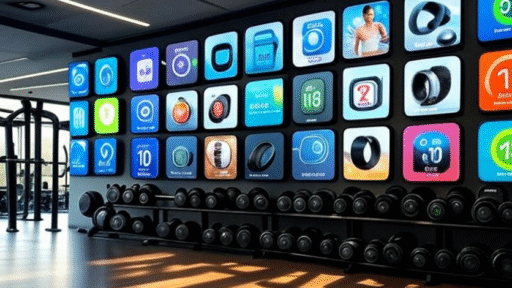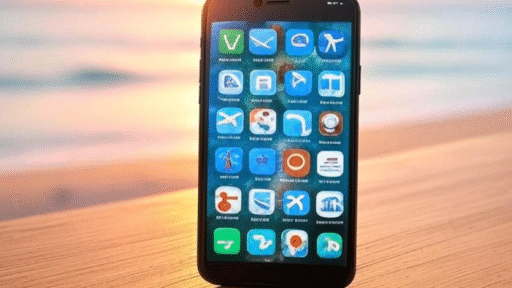Managing money isn’t always easy. Between bills, savings, and everyday spending, it can feel like money slips away before we even notice. That’s where finance apps step in. These apps help you track, save, invest, and plan your finances in a smarter way. The best part? You don’t need to be a finance expert to use them. Just a few taps on your phone, and you’ll know exactly where your money is going.
Let’s explore the best finance apps that can make your financial life much simpler and smarter.
Why finance apps matter today
Back in the day, people used notebooks to track their expenses. Some even used spreadsheets. But times have changed. Today, apps can connect directly to your bank, credit card, or even your investments. This means you can see all your money in one place, with charts, reminders, and budgeting tools.
Finance apps do more than just track spending. They can:
-
Help you set budgets 📝
-
Send bill reminders
-
Suggest ways to save more
-
Guide you toward investments
-
Show your net worth in real time
So, if you want to control your money instead of letting money control you, finance apps are worth checking out.
1. Mint – The All-in-One Budget App
Mint is one of the most popular finance apps for a reason. It brings everything into one dashboard: bank accounts, credit cards, bills, and even your investments.
What makes Mint great is how simple it is. Once you connect your accounts, Mint automatically tracks your expenses and groups them into categories (like food, travel, or shopping). You don’t have to do much work—Mint does it for you.
Key features of Mint:
-
Automatic expense tracking
-
Bill reminders
-
Free credit score monitoring
-
Personalized budget suggestions
👉 Perfect for: Beginners who want a simple, all-in-one money manager.
2. YNAB (You Need A Budget) – For Serious Budgeters
YNAB isn’t just about tracking expenses—it’s about teaching you how to give every dollar a job. This app follows the “zero-based budgeting” method, which means you assign every dollar you earn to something specific: savings, rent, bills, or even fun money.
The app is powerful, but it does take a little learning. Think of it like a budgeting coach in your pocket.
Key features of YNAB:
-
Real-time syncing with your bank
-
Debt payoff tracking
-
Goal setting
-
Educational resources to improve money habits
👉 Perfect for: People who really want to get disciplined with money.
3. PocketGuard – Keep Spending in Check
If you ever ask yourself, “How much can I spend right now without messing up my budget?”—PocketGuard is for you.
This app looks at your income, bills, savings goals, and then shows you how much you can spend safely. It’s like having a financial green light, yellow light, or red light.
Key features of PocketGuard:
-
“In My Pocket” tool to show safe-to-spend money 💵
-
Tracks recurring bills
-
Identifies subscriptions you might not need
-
Helps prevent overspending
👉 Perfect for: People who want quick, no-fuss money control.
4. Goodbudget – Old-School Envelope Budgeting, But Digital
Remember the envelope method, where you put cash in different envelopes for groceries, rent, and entertainment? Goodbudget brings that method to your phone.
You create virtual envelopes for different categories, and then you track how much you’ve spent in each one. It’s simple but surprisingly effective.
Key features of Goodbudget:
-
Envelope-style budgeting
-
Works well for couples or families
-
Manual entry for expenses (keeps you mindful)
-
Available on multiple devices
👉 Perfect for: People who want a simple and mindful way to budget, especially families.
5. Personal Capital – For Wealth Tracking
If you want to see the bigger picture—your bank balance, retirement savings, investments, and debts all together—Personal Capital is an amazing tool.
It’s not just about budgeting; it also focuses on long-term financial planning. You’ll get a clear picture of your net worth and how your investments are performing.
Key features of Personal Capital:
-
Net worth tracker
-
Investment analysis tools 📈
-
Retirement planner
-
Cash flow tracking
👉 Perfect for: People who want to focus on building wealth, not just budgeting.
Comparison Table of Finance Apps
| App Name | Best For | Key Feature | Cost |
|---|---|---|---|
| Mint | Beginners | All-in-one dashboard | Free |
| YNAB | Serious budgeters | Zero-based budgeting | Paid (trial) |
| PocketGuard | Everyday spenders | Safe-to-spend insights | Free/Paid |
| Goodbudget | Families & couples | Envelope-style budgeting | Free/Paid |
| Personal Capital | Wealth builders | Net worth & investment tracking | Free |
How to choose the right finance app for you
Not every app works for everyone. Before choosing, ask yourself:
-
Do I just need expense tracking or full wealth management?
-
Do I prefer automatic tracking or manual control?
-
Am I okay with paying for advanced features, or do I want something free?
A beginner might love Mint because it’s free and automatic. A family could go with Goodbudget. And someone focused on investments might find Personal Capital most useful.
Tips to make the most of finance apps
Just downloading an app isn’t enough—you need to use it the right way.
-
Check it regularly: Spend 5 minutes daily to see where your money is going.
-
Set clear goals: Whether it’s saving for a trip or paying off debt, apps work best when tied to goals.
-
Be honest with your spending: Don’t hide purchases from yourself—record everything.
-
Use notifications: Let the app remind you about bills or budget limits.

The Best Finance Apps to Manage Your Money Smarter
Common mistakes people make with finance apps
-
Linking only one account (instead of all accounts)
-
Ignoring small expenses (like daily coffee ☕, which adds up)
-
Quitting after one month because it feels “too much work”
-
Forgetting to update categories or goals
If you avoid these mistakes, the apps will actually help you save money and stay in control.
FAQs
Q1: Are finance apps safe to use?
Yes, most finance apps use bank-level encryption. Always choose apps from trusted companies and enable two-factor authentication.
Q2: Do I have to pay for these apps?
Some are free (like Mint and Personal Capital), while others (like YNAB) are paid. Paid apps usually offer more control and features.
Q3: Can finance apps help me get out of debt?
Absolutely. Apps like YNAB and PocketGuard are designed to track debt and help you pay it off faster.
Q4: What if I don’t want to link my bank account?
You can use apps like Goodbudget, where you manually add expenses. This gives you full control without connecting to a bank.
Q5: Which app is best for students?
Students might like PocketGuard for daily spending or Mint for overall tracking. Both are free and easy to use.
Final Thoughts
Finance apps are like digital money assistants. They help you stay on track, avoid overspending, and work toward your goals. Whether you’re trying to save for a new phone, pay off a loan, or plan retirement, there’s an app for you.
The important part is not just downloading the app but actually using it consistently. With the right app and a little discipline, you’ll find yourself in control of your money instead of constantly worrying about it.
So, pick one, give it a try, and watch your money habits change for the better 🚀.





